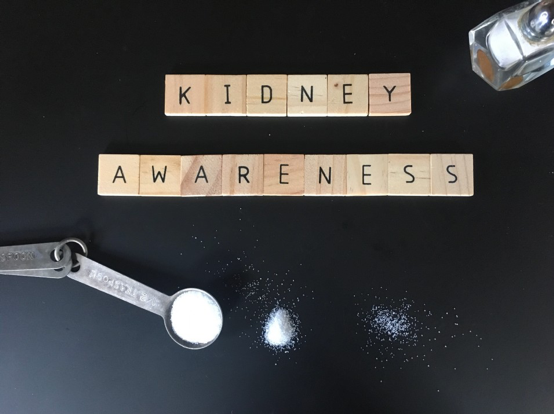
Happy National Kidney Month! These bean-shaped organs perform several vital functions within your body, including filtering waste and excess water from your blood, regulating blood pressure, and assisting in red blood cell production. Because your kidneys work so closely with your heart and cardiovascular system, developing kidney disease can directly impact your risk of heart disease, so it’s important to be aware of your kidneys’ health and take the necessary steps to protect them.
Assess Your Risk
Around 33% of American adults are at a risk for developing kidney disease, though many are unaware of it because the early stages of kidney disease often have few or no symptoms. Many of the suggested steps to reduce your chances for kidney disease revolve around reducing blood pressure, as high blood pressure, among diabetes and obesity, is one of the leading causes of kidney disease. Assess your other risk factors with the National Kidney Foundation’s one-minute assessment, and if you find yourself at a risk of kidney disease, talk to your doctor about getting a blood and urine test.
Eat Well
Ah, yes—what health tip list would be complete without this advice? As common of a suggestion as it is, eating well is a vital part of maintaining kidney health, as well as the overall health of the rest of your body. Not only do your kidneys process everything you eat and drink, but a poor diet can also lead to high blood pressure and other conditions that put a strain on your kidney health. It’s important to limit your sodium intake, especially if you’re at a higher risk for kidney disease, and your alcohol consumption, as alcohol affects the kidneys’ ability to filter waste from the blood.
Limit NSAIDs
Non-steroidal anti-inflammatory drugs, or NSAIDs, include medications like ibuprofen and naproxen and are commonly used to relieve pain, reduce swelling, or treat fevers. Because NSAIDS block the chemical that helps widen the blood vessels near your kidneys, too many NSAIDs or NSAIDs taken too often can hinder blood flow to your kidneys.
The good news—the damage excess NSAIDs can cause to your organs is reversible. If you frequently use ibuprofen to treat headaches or chronic pain, try out other methods of pain management.
Incorporate Exercise
Another seemingly general health tip—get active! While it sounds like basic advice, exercise has a multitude of benefits that keep your kidneys healthy and functioning properly, like lowering your blood pressure and cholesterol, as well as helping you maintain a healthy weight.
For more resources regarding kidney health, visit the National Kidney Foundation website, and check out the Specialized Health and Safety blog for more articles on staying healthy.

